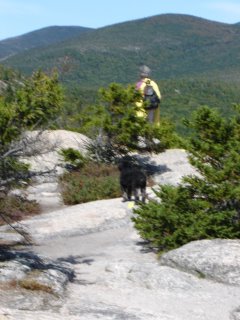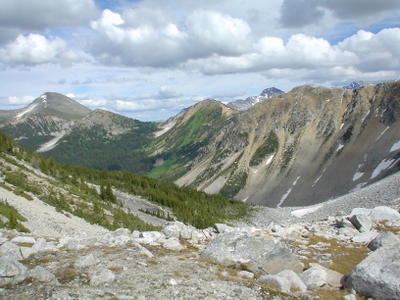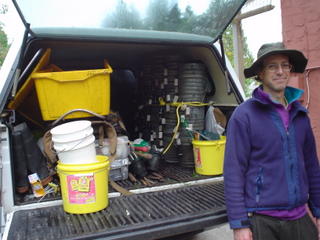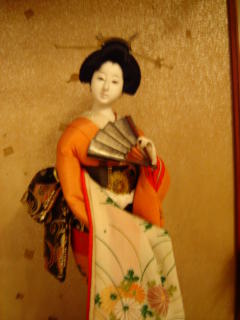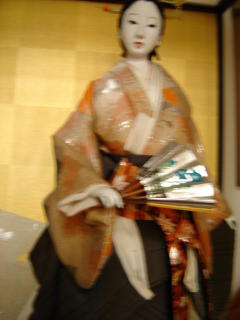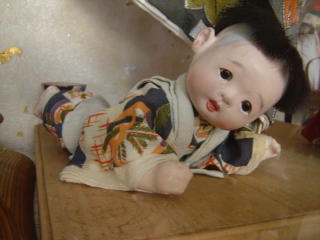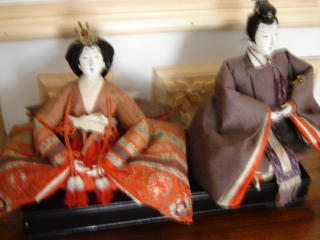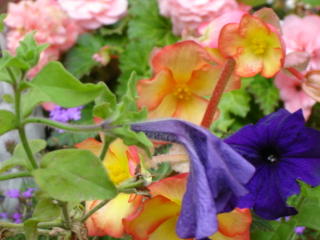Life's Like That

Not too much can actually ruin my day, but things do happen that make me wonder why I'm still enthusiastic and optimistic, to be sure. I do get at least one dirty look, and there will be more, as I make my rounds of my neighbourhood street, collecting for the Canadian Cancer Society canvass (Heart and Stroke, Canadian Diabetes Association, CNIB, Arthritis Society, Salvation Army, March of Dimes; take your pick). Nothing makes me more annoyed than people who groan bitterly, living in my middle-class neighbourhood, that they're over-taxed and overextended. Those who declare donor fatigue anger me even more. Living our lifestyles, wasting money on items that seem to complement our needs, but are in fact negligible to them, and refusing to render a few dollars to a charitable cause is the ultimate in nihilism. We must have values and among them must be the recognition that those who live without want have an obligation to those who do live in want. The fact that the Red Cross and other aid agencies are lamenting what they recognize as donor fatigue in response to the dreadful earthquakes in Pakistan and India, is a dreadful situation. We gave for the Tsunami which hit Indonesia and Sri Lanka on 27 December 2004, we gave in the aftermath of Hurricane Katrina, and we must continue to observe our obligations, at home and worldwide. To do otherwise is to render us far less than we should be.
One more worry: what it was that caused my husband to experience stomach cramps during the night before. I don't think it was the Cornish hen, it smelled fresh and fine, but the asparagus had a distinctly odd smell about it. One more morning when I awaken, and wonder if our daughter will have an all-right day at work, or whether she'll have a run-in with someone, resulting in the spoilation of her day, which, when she picks our grandchild up after school, we'll hear all about, and grieve for her peace of mind. And ours. One more day where we do our best to entertain our granddaughter, wishing that there was a little girl her age on our street with whom she could play, confide in, and pass the time. Mind, we could always play Scrabble or Monopoly (she no longer allows me to read to her, insisting that she read to me, which she does rather well, but soon tires of doing), although I'd much rather be out in the garden. None of these things ruin my day, but they do take the dew off complete contentment.
I'm a senior citizen, living in the not-too-far reaches of Ottawa proper, in pretty good health but experiencing problems sleeping peacefully through an entire night. I'm not too thrilled that my recently-initiated baby aspirin therapy has resulted in constant heartburn. It's what Ivan Illich so famously described as iatrogenic illness so many years ago. When I pass you on the street you might wonder why I'm carrying that tiny dog, instead of walking it, but I intend to put it down once we reach the wooded ravine where we enjoy our daily walks. I am a "respectable" senior citizen, despite my casual walking clothes, my yappy dog and my flying hair. I know that most of the people I pass, even those I wave casually to have some opinions about me, some perhaps unflattering, but guess what? I don't really mind.
Sure, sometimes I feel that my biggest problem is that I'm not independent enough, that I enjoy my husband's company too much, his conversation, his comforting presence, and I'm simply loathe to give it up however temporarily for other pursuits like going out for coffee, lunch, bowling, you name it. I do have fears about the health and happiness of our children, and I think how wonderful it would be to find a cure for diabetes so our oldest child would no longer require multiple daily injections. I worry about his little brother living so far away in British Columbia, addicted to the mountains, summer and winter. If he had a constant companion to share his exploits and love of nature with, we'd worry less. Yes, we would.
Oh, I wonder also if I've offended an old friend, as I've not yet had an e-mailed response to our last communication. Perhaps I should be less frank in future, regardless of the fact that my opinion was certainly sought, on a certain sensitive issue. I think often of our near neighbour whose health is rapidly declining, and whose constant complaints result in his wife seeking time away as often as possible, and how it is that we tend to do the best we can in very uncomfortable situations, and our devices don't always work as well as we hope they might.
Am I stereotypical? I'm not entirely certain of that. Of all our neighbours there is only one woman with whom I can discuss a piece of world literature, or arcane and not too well-published things happening in the world around us. It was to this same neighbour, much younger than I, that I turned several years ago when I sought someone of like mind to accompany me to the anti-war demonstration in Ottawa. Now there's a story in itself. Our neighbour is married to a man of Egyptian descent, had in fact lived herself in Egypt with him for a few years. When I knocked on their door, seeking company to demonstrate against a war the U.S. meant to wage in Iraq, they are first refused. Ten minutes later she knocked on our door; her husband Mustafa, had said to her, what if he was tired, if I could manage to get out there in minus-20-degree-celcius weather on principle and commitment, then so should he. And thus it was that I had the pleasure and comfort of their company on that occasion).
I recall when I was still working and listening to the news in my small office cubicle, searching out co-workers with whom I could share my shock upon first hearing of the assassination of Indira Gandhi, then years later that of her son, Ranjit. No one knew to whom I referred, no one recognized those names. Then I was trully shocked. I harbour (well repressed) feelings about my coevals who take no interest in world affairs and literature. What a waste. I will discuss these and any other issues with anyone who might evince some interest. Do take up my offer, please.
If and when you see me hiking along in the ravine with my husband and our two little dogs, make the effort to return my greeting. It would make us both feel good. Mind, whenever we encounter teen-agers in the ravine, leaning over a bridge, smoking pot and trying to hide it, their responses are invariably good-natured and much appreciated. If you see me at the Salvation Army Thrift store, doing a little giving and also a little shopping, or at the Food Basics supermarket, and you see in me a stereotypical older woman, well, so what? Just do me the kindness of responding to my greeting, my smile. Believe me, it is genuine. I know we have different interests, varying backgrounds, worrying problems to face, but I know also that we have time for one another, for a brief greeting, to affirm that we have more in common than we do not.
Home Renovations



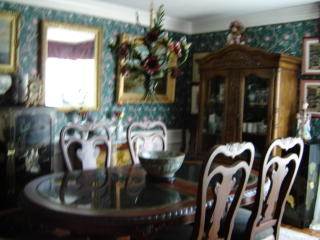
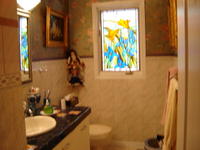
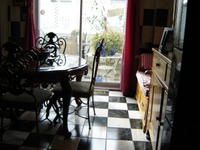

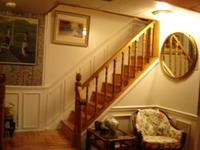


I know, you’re curious. You want to know how we managed fifty years of marriage. Harmony above all - we accept differences of opinion. We are committed to openness in meaningful communication. We trust one another implicitly. We have the greatest of respect for the consultative process. As an example, when children leave home, parents downsize, right? Gotcha! My husband, the contrarian, suggested we move to a larger house. Whaaat? Are you crazy? I asked him.
Soon after we moved into this house my husband, looking around at the expanse of the place, and contemplating the upstairs corner room with its balcony overlooking the foyer, opined it would make a great library. What? I squawked, we just moved in! He set about acquiring lodge pole pine and lined the walls. Next came the shelving, and after that the cornices, mouldings, all accomplished with the aid of century-old moulding planes. We unpacked all the books from their boxes in the basement. Voila!
This house started life as an open concept. I wasn’t all that enamoured of those huge two-story rooms, imagining my husband straddling a height-defying ladder to paint those endless walls. And his first acquisition post-ownership? Two formidable steel-pipe and wood-slab scaffolds. All the better to reach you with, dear heights… Where I saw unmanageable heights, he recognized scope for oriental screens and his 19th century paintings. At home alone, my husband set up the scaffolds, one atop the other, and unassisted, hung a rice-paper eight-fold screen in the high reaches of the living room. In the process the screen was punctured. It survived all these years only to be maltreated at your hands? He airily dismissed the misadventure and performed an admirable repair.
The open concept? My husband bought glass-paned French doors. Extra-large sizes between the foyer and living room, the foyer and the family room, the foyer and the dining room, the kitchen and dining room. Five stretched between the breakfast room and family room, three fixed and two swung open. Did we argue over this? Not at all, why would we? I did demur, it’s true, reminding him how much we appreciated that open look. But, he remonstrated, we can see through these doors!
This house has vast expanses of windows, many of them two stories tall. Hmm, my husband mused, wouldn’t it be interesting to have stained glass in there? Eeek! I shrieked reflexively. Well, the windows in our bedroom now reflect, full height and width, Tom Thomson’s ‘storm on a lake in Algonquin Park’, the Palladian windows in the family room a glorious forested winter scene. The library’s windows display a summer lake aside a wood, and the sidelights and Palladian window in the foyer are a kaleidoscope of exotic flora and fauna. Guess what? The heat of the sun on coloured glass is transmitted as heat. Great in winter.
Then he retired. Time to finish the basement. What for! We’ve got more rooms than we need for two people! The staircase downstairs was re-built in oak, plumbing done, electrical work, framing and drywalling. He read a lot of how-to books. We’re talking big, big floor areas. He brought home a bargain: mauve tiles at 6cents apiece. We’ve got a study down there (parquet flooring), another powder room and a huge studio where he set up his painting easel.
Nothing complements a house more than lovely colourful gardens. I adore gardening. No one goes near my gardens. What about delineating the beds and borders? Over my dead body. Massive excavation ensued: soil, dirt, clay and construction rubble. Seeing the driveway full of pallets of stone blocks and cobbles my heart sank. He chiselled the blocks and cobbles by hand, using a stonecutter’s chisel and hammer. Our house became a neighbourhood drop in centre. Now we’ve got a lovely courtyard from which to view our extraordinary gardens. The elevated borders make gardening easier, but the statuary, fountain, plinths and urns, and the café set make accessing some of the areas a contortionist’s delight.
What did I think of laying ceramic tiles in the laundry room, kitchen, breakfast room, powder room? Hey, maybe up the walls too. But dear that sounds like so much work! Little did I know. During this process the kitchen counters and powder room counters were ripped up, re-built, and also tiled. End result? Great, really great. Trouble was, he threw out one of his ankles somehow, don’t ask how. Bedridden for three months as his knee, his leg, and then finally the other became affected.
Since then, my friend, we’ve had the master bath counters re-built, laid with tile. The sinks replaced. The floor and walls laid in grey-white pink-streaked marble. The dining room now sports a cherry floor, the library and master bedroom rubberwood floors, the upstairs hallway exotic oriental strip floor, the main staircase retrofitted to oak. AND EVERYTHING LOOKS GREAT.
He’s indefatigable. He’s got black marble, more white-grey marble stored in the basement. More stained glass, too. Lots of work yet left to be done on this evolving house that is our home. I do the cleaning. See me in say, 40 years. We can discuss elements of successful longevity.
Our Year in Tokyo
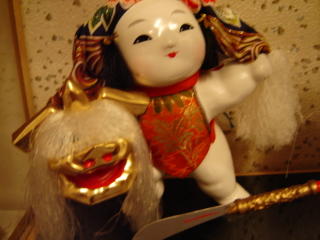

Tokyo is where I read "The Pillow Book", "The Tale of Genji" (the Shining Prince of ancient Japanese legend written in the 10th century), and "The Dream of the Red Chamber", an early Chinese novel, and where I felt the alluring mystique of the east enfold me in its gentle clasp. Camellias bloom in fall, azaleas in spring, and ornamental kale is planted alongside winter sidewalks. Jungle crows cawed atop the water tower and their black weight as they hopped on the metal rooftop of our house sheltered in its compound sounded like a grown man up on the roof. Feral cats slink along alleyways, and their kittens slip into gutter gratings before you can even begin to think of catching them. They feed on the refuse left weekly in a communal-gathering spot for garbage collection..
Initially, we lived at The Pegasus Apartments close to Aoyama dori. At night we joined throngs of pedestrians on tranquil autumn evenings. Bicycles, motorbikes, motorcycles are entrusted unlocked, to parking areas. We would occasionally ride our own bicycles on the wide boulevards along with so many others. In the streets, ancient bonsai sit on sidewalks adjacent cramped homes where there is no place for them. Their owners know their treasures are safe on public display. No one in Tokyo would ever dream of disturbing anything belonging to someone else. Similarly, beautifully decorated large pots sit out beside homes, and golden carp, befitting the size of the pot, swim lazily around and around their confines. At night the many 'downtown' areas scintillate in neon blaze. Strolling broad boulevards we pass impressive hotels, the Imperial palaces and upscale shops. Deeper into the city, constricted streets force vehicles to proceed with caution. Most residents live in crammed concrete apartment blocks. Futons hang out the windows of each tiny apartment contained within soaring buildings day creating an appearance of doilly-festooned facades. Firefighters garbed in white moon-man uniforms hand-pull wheeled gear into these unnamed, numbered streets. At intersections stand cobans, box-like structures manned by police, area maps on the walls. If in doubt, enquire. The police make it their business to know of everyone in their precincts; they conduct introductory enquiries at your door if you've just moved into a neighbourhood. Not in a threatening manner; polite and thorough in their questioning. Then they depart, never to be seen again. Oddly this leaves you secure in the knowledge that they are there to serve you and all the other residents nearby.
Traffic is heavy but accidents few, car horns rarely used. The Japanese harbour a mild horror of drawing attention to oneself. To speak loudly in public, to sound one's horn simply is not acceptable. When drivers stop for red lights, they shut the ignition, a holdover of the last war, when energy conservation was of utmost importance. . Most cars are a variant of cream or white. Black cars are driven by the Yakuza. Japanese taxi drivers are uniformed in cap and white gloves, wielding feather dusters to flick dirt from their vehicles. Should a few centimeters of snow fall in winter panic ensues, chains are fitted to tires, then removed shortly afterward, as the newfallen snow quickly melts in the generally benign winter atmosphere..
Buildings under construction or renovation are completely enclosed in scaffolding; engulfed in huge white tarps. Construction workers wear white coveralls, soft helmets and white felt boots resembling camels’ feet. Roadwork takes place at night, the restored surface opened to morning traffic. There is thus, no interruption of the ebb and flow of regular traffic throughout the day; other than for the fact that with upwards of fourteen million people within the city during the working week, it is inevitable that a huge number of vehicles will be upon the streets at any given time. So traffic, although it flows, does so slowly, and since the Japanese are not particularly good drivers, this is just as well, keeping traffic accidents to a minimum. Polite, restrained and reserved generally within society, many Japanese drivers become transformed behind the wheel of a car, and practise a sly and stealthy one-upsmanship of speedily overtaking and illegally passing at any opportunity on crowded roads.
Tokyoites are, however, polite and reserved otherwise how could such a huge population living in such a tiny geographic area conceivably get on in the amicable fashion that they do? The standard response, answering the telephone is "mushi-mushi?" No one can explain what it means. There is a collective quiet in the city, despite its size and habitation. The exception to the general hush is a melodic chime heard throughout the city at five o’clock. This is my signal to walk to a little corner store for the Maiinichi shinbun, a daily English/Japanese newspaper. There are street vendors hawking roasted yams. Impulsively, Japanese engage westerners in public discourse, happily grasping the opportunity to practice English.
Tokyo summers are unrelentingly hot and humid. Leaving air conditioned interiors, one recoils upon reaching the street as though slapped with a scalding, wet towel. Every block or so throughout the city large automatic dispensers vend hot tea, coffee or cold sport drinks. Tokyo is located in an earthquake-prone zone. And we experienced many shudders of the earth during our stay in that city. Most of them when we were indoors, but several when we were out of doors. It isn't a thrilling experience; the movement of the earth, and therefore everything that surrounds you seems to go on forever. Until it finally stops and you can safely exhale. In the front clothes cupboard of our house there was an earthquake backpack with necessities which we would grab in the event of a needed evacuation should an earthquake erupt of massive proportions. How would we know? I often thought, since we would most often sit there, sucking back our expectant breath, until the shuddering passed.
Daily food shopping prevails. One visits the fruit- and vegetable-monger, the rice shop, teashop, fishmonger, florist, hardware merchant. Shop fronts open to the street, are shuttered at night. Since leaving Japan I’ve never tasted fruit so sweet, vegetables or fish as fresh. The bustling, expansive markets near Ueno Park offer food and clothing in bazaar-like abundance. Our favourite week-end jaunt for shopping was Ueno, and there we would walk among the multitudes, marvel at the spectacle of food, particularly seafood, set out on banks of open stalls. Before we got our car, we would haul shopping bagsful of fresh produce back with us to the Pegasus Apartments. Fact is, the mass transit system in Tokyo is unparalleled for efficiency. My husband had no trouble figuring out the subway system, but when I wasn't with him I trusted myself only to the buses, or shank's mare. I did one hell of a lot of walking, terrifically far distances, and loved every step of the way, for I'd never be certain what I'd come across; each turn was an adventure. Speaking of turning. I figured out that if I always turned right, for example, then on the return trip turned left consistently I would invariably find myself back where I had begun. I didn't get lost too often, but when I did, I would use my very rudimentary Japanese to ask directions. Anyone I thus approached for directions would kind of panic, not recognize my attempts at language, but finally it would sink it and the person to whom I spoke would guide me gently on my way. Once, a young woman insisted on walking with me the entire way back to where I had started, obviously feeling a tremendous responsibility for this poor lost westerner.
Tokyo boasts singular districts of shops devoted to cookware, footwear, meats, fish, books, electronics, and motorcycles. Tokyo’s neighbourhoods resemble an assemblage of multitudinous villages. There are kissaten (coffeehouses) and soba (noodle soup) cafes; temples and shrines, parks and botanical gardens with ponds full of giant gold, silver, and orange carp. There was one of these temple/shrine/botanical gardens close to where we lived, and occasionally we would enter the gardens, walk among the artfully placed ornamental shrubs and trees, peer into the large pond with its huge gold, silver, orange carp, and admire the display of venerable bonsai set out on shelves in the garden. This place in particular was a favoured site for weddings and it was easy to understand why that would be.
In Yokohama we visited a doll museum. Close by we entered an antique shop and there I bought my very own Gosho Ningyo, a fat-faced, ornately dressed doll astride a hobbyhorse. Bordering the Pacific Ocean, Kamakura is a city of temples, one devoted to the Great Daibutsu, a towering bronze Buddha. Another temple is dedicated to a Buddha accredited as the protector of lost babies. Tiny replications of Jesu are placed around the temple grounds, many of them dressed in scanty little fabric garments. People leave babies’ playthings and clothing sitting before many of these little buddha-replications in poignant remembrance of babies lost in infancy, even fetuses lost in miscarriages.
We joined an international travel group; mostly Japanese, some foreigners (Germans, Australians, Brits) and traveled week-ends by bus to tea plantations, traditional Ryokan (inns) and once to Hamamatsu, where the kite festival takes place, rural communities vying against one another, manipulating giant kites, lines arrayed with knives. The winners, whose kite survives airborne, exult in their martial skills. With that same group we traveled the coast to Okuyama, staying overnight at a Zen Buddhist temple nestled in the hills and forests outside the village. There, bathers scrub themselves seated on little stools before entering the steaming communal bath. One sheds slippers for wooden clogs to enter the communal bathroom, balancing over floor-level toilets. Both the baths and the bathrooms are separated for the genders. We slept on futons in a tiny tatami-matted room and rose at five to participate in the morning service. I thought my legs would never recover from assuming the Lotus position. In the sprawling Temple buildings, one adjoining another, I discovered echoes of Umberto Ecco’s Name of the Rose. Following breakfast of miso soup, rice, raw egg and chai, we wandered the Temple grounds and heard, from an embankment towering above us a divine chorus of men’s devotional voices. As we followed a narrow dirt road down toward the village two tonsured monks in flowing robes passed in a Mercedes Benz, nodding at us as they sped on. These were two of the same monks who had offered special prayers for loved ones for a modest fee the evening before, at the temple.
We joined Friends of the Earth and took a series of subway trains, buses and railway trains, passing outlying communities, finally reaching trailheads where our group of twelve would ascend mountains to explore landscapes infinitely dissimilar to any we’d trekked before. We climbed mountain trails from the trailheads just outside small villages which seemed lost in time. During our hikes we came across giant trees said to be a thousand years old, near the top of one mountain. At another, we came across a temple near a summit, and beside the temple two huge sandals hung, in memory of a Buddhist monk who had trekked across Japan, and in whose memory thousands of Japanese take upon themselves similar yearly treks, from temple to dedicated temple. We hiked through bamboo forests, the odd green trunks thick with age, and stone lanterns standing under the trees along the trails, gave the entire scene a truly otherwordly atmosphere. During one hike we took part in a tea ceremony, a grave and beautiful affair.
To again stroll Omotesando on a Sunday, or Shibuya, or Giain Higashi dori; to promenade along the Ginza, or through Ueno Park under cherry blossoms; to see the Temple of the 47 Ronin where the earth shuddered underfoot, or the Asakusa Kanon Temple by the Sumeida River where the Floating World of the Geisha once flourished, is to dream.
